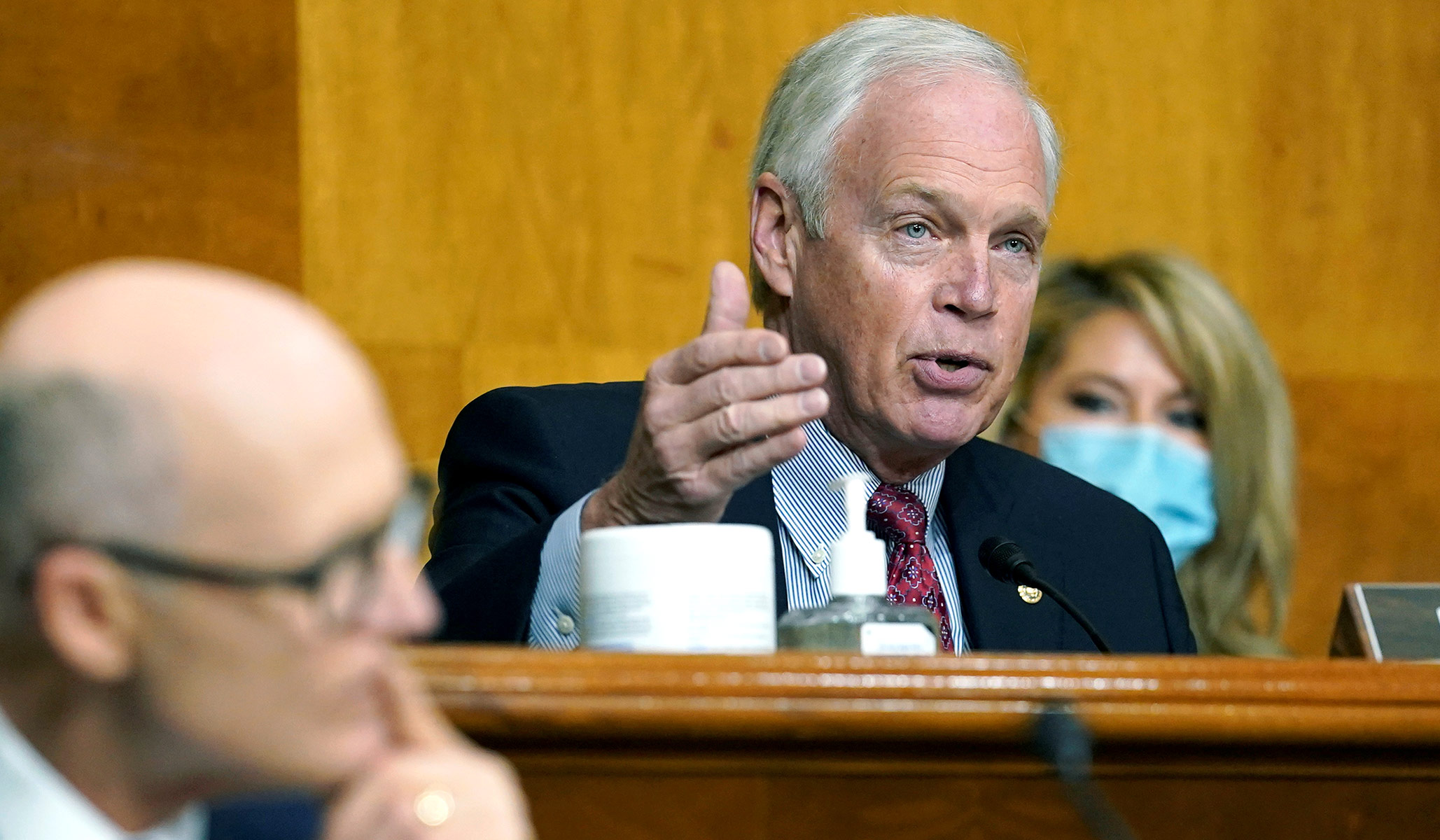
Republicans in Congress always talk a good game when it comes to deficit spending.
Early last week, 46 GOP senators, led by Senator Ron Johnson of Wisconsin, signed a pledge noting their opposition to raising the debt ceiling. Johnson said Democrats “shouldn’t be expecting Republicans to raise the debt ceiling to accommodate their deficit spending.”
Whose deficit spending, exactly?
Let us be honest. Washington’s weighty annual debt is not the result of one party’s fiscal irresponsibility, but rather of both parties’ marching the country into insolvency together.
What’s more, recent history provides an avenue for reining in out-of-control spending: budget caps.
In a deal struck between then-speaker of the House John Boehner and then-president Obama during the 2011 debt-ceiling negotiations, Congress limited its spending authority, imposing budget caps to force broad spending cuts. Prior to 2011, the federal government spent 24.4 percent of gross domestic product (GDP). The so-called sequestration process, touched off by the Boehner–Obama deal and codified in the Budget Control Act of 2011, reduced those expenditures to 20.3 percent of GDP in 2014.
In 2017, while controlling both chambers of Congress and the White House, Republicans broke the 2011 spending caps, opting to vote for new deficit spending in response to a series of hurricanes in southern red states such as Texas, Louisiana, and Florida. We again broke the budget caps to pay for increased military spending even as U.S. involvement in the Iraq and Afghanistan wars was winding down. And at the same time that we voted to increase spending, we voted to reduce taxes.
In 2011, Congress wisely banned earmarks, the special appropriations that members had been allowed to designate for their districts, both because of the corrupting influence the practice often had on the leadership of both parties and because of the wasteful projects the appropriations supported. Earlier this year, House Republicans voted 102–84 to bring the earmark process back. Senate Republicans swiftly followed the House’s lead and voted to do the same.
For too long Republicans have played a complicated game of supporting popular appropriation bills while opposing the debt-limit increases made necessary by excessive spending. Republicans spend like Democrats in Washington, D.C., during the week. But when they return home for the weekend, they boast to their constituents of voting against another debt-limit increase, in an effort to bolster their conservative bona fides.
This is hypocrisy of the highest order on the part of those elected to represent the American people.
We Republicans have had great success over the years running on promises to bring fiscal responsibility to Washington. It’s a noble goal. Saddling future generations with crushing taxes, rapidly rising interest rates, and diminished chances of paying off our irresponsible spending violates our sworn duty as lawmakers, and it’s also flat-out immoral. Yet we are the party that routinely caves when big-spending bills come to the floor.
The infrastructure legislation the Senate passed last week is a perfect example of the GOP’s inconsistency on our nation’s spending crisis. Nineteen of the 50 Republicans in the Senate voted for this massive $1.2 trillion bill, which in turn garnered praise inside the Beltway because it passed with bipartisan support.
One of the lead negotiators of the bill, Senator Kyrsten Sinema (D., Ariz.), joined the chorus of praise, speaking as if bipartisanship were an end-goal in and of itself. Sinema said she always hopes to “reach bipartisan agreements that try to bring the country together.” I suppose nothing brings a country together like unaffordable pet-project spending and handouts to unions and various other special interests.
As the bloated infrastructure bill makes its way to the House next week for a vote, Republicans shouldn’t confuse posture with principle. Voting against a debt-limit increase is posturing, plain and simple; saying no to the unprecedented levels of deficit spending the infrastructure package would necessitate is principled.
Accordingly, I strongly urge my fellow Republicans to join me in voting against appropriations bills and debt-ceiling increases until we return to budget caps and the sequester. Yes, this means Republican priorities such as defense spending will suffer slower growth during peacetime. It also means that when natural disasters strike, the affected states, whether “red” or “blue,” will have to shoulder more of the burden on their own. Even health care, infrastructure, and other problems some consider crises will have to be addressed responsibly and diligently. But the alternative — saddling the next generation of Americans with crushing debt that it has no chance of paying off — is much worse.
Against the backdrop of the Democrats’ recklessness, Americans are looking to Republicans now for principled leadership. Let’s honor hard-working taxpayers by opposing wasteful spending. And while we’re at it, let’s avoid the gridlock and chaos that inevitably follow meaningless pledges and ever-changing stances on the debt limit, too.
Article From & Read More ( Reckless Spending Is Washington’s Bipartisan Sport - National Review )https://ift.tt/3CQ3w7X
Sport
Bagikan Berita Ini














0 Response to "Reckless Spending Is Washington’s Bipartisan Sport - National Review"
Post a Comment